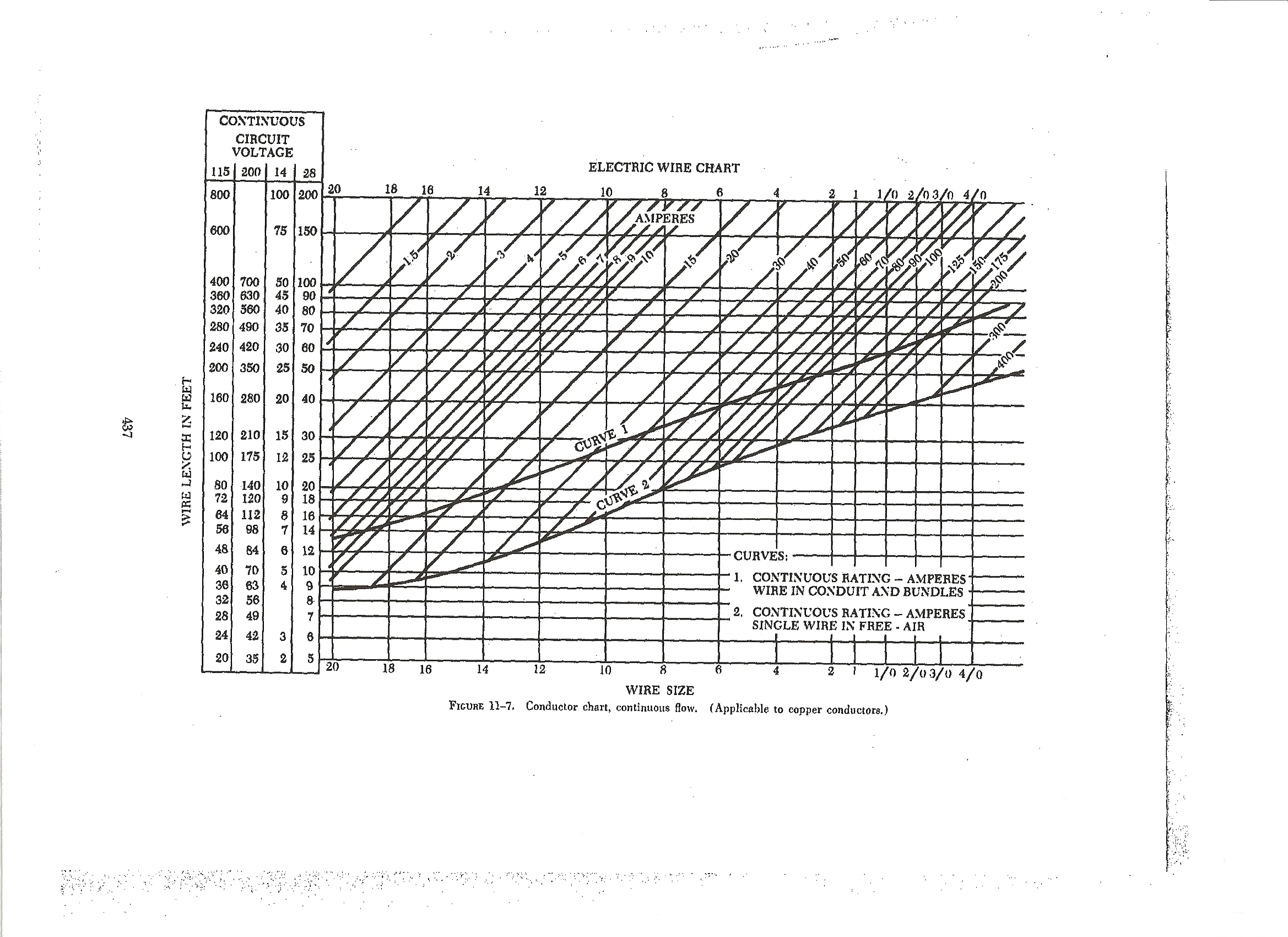Sounds like the backup battery is the way to go. If you have the EMS ability on the EFIS you might as well use it. What unit is it?
As far as wire gauge goes. I used #4 from the battery to the starter (through the solenoid), #8 to the main bus and shielded #8 from the alternator to the bus. Most everything else was either 18 or 20 gauge depending on the draw.
Here's the chart for that ...
Image Insert:
